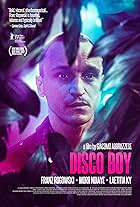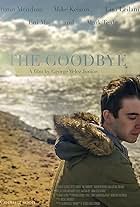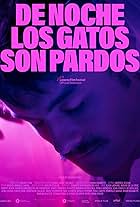onefineday36
Joined Feb 2006
Welcome to the new profile
We're still working on updating some profile features. To see the badges, ratings breakdowns, and polls for this profile, please go to the previous version.
Ratings128
onefineday36's rating
Reviews60
onefineday36's rating
Yuri is 19. He's the family urchin, and nobody, even his little nephews don't take him seriously. His aunt treats him kindly, but ever like a little child.
Agostino is a wandering children's entertainer. His charm to his audience leans more towards certain charisma and subtle manipulation rather than harmless humour and slapstick. Consciously or not, he instantly knows, from Yuri's eyes full of nervous fascination to him, that he can easily have Yuri under his control. Whenever Yuri seems to slip away, Agostino tightens his grip - when Yuri gets close to another guy Morgan, Agostino masturbates Yuri, and whispers, "Does Morgan do this for you too?" in the secure knowledge only he could do that to Yuri.
In a lot of regards, 'Patagonia' reminds me of Fellini's La Strada... except it's somewhat more intense and stickier. Yuri is not entirely pure and passive as Gelsomina. He has his needs, he has his wants, he gradually starts to think for himself. When Yuri finally stands up for himself, we see Agostino is not entirely a cold manipulator. After all he is just as lonely and lost figure, who, if in a very twisted way, needs somebody next to him too.
My biggest compliment goes to Fuorto who portrayed Yuri so convincingly. Right from the first scene, we see the close up shot of his eyes, and his eyes capture Yuri's constantly fleeting nervousness, desire, confusion and pain. Russi's Agostino is by nature not quite as detailed, but his charismatic performance balances Fuorto's Yuri very well.
It is not an entirely comfortable watch considering how exploiting their relationship is. But if you put the moral judgement aside, and just focus on the character's emotional journey, I'm sure you'll find something to appreciate from this work.
Agostino is a wandering children's entertainer. His charm to his audience leans more towards certain charisma and subtle manipulation rather than harmless humour and slapstick. Consciously or not, he instantly knows, from Yuri's eyes full of nervous fascination to him, that he can easily have Yuri under his control. Whenever Yuri seems to slip away, Agostino tightens his grip - when Yuri gets close to another guy Morgan, Agostino masturbates Yuri, and whispers, "Does Morgan do this for you too?" in the secure knowledge only he could do that to Yuri.
In a lot of regards, 'Patagonia' reminds me of Fellini's La Strada... except it's somewhat more intense and stickier. Yuri is not entirely pure and passive as Gelsomina. He has his needs, he has his wants, he gradually starts to think for himself. When Yuri finally stands up for himself, we see Agostino is not entirely a cold manipulator. After all he is just as lonely and lost figure, who, if in a very twisted way, needs somebody next to him too.
My biggest compliment goes to Fuorto who portrayed Yuri so convincingly. Right from the first scene, we see the close up shot of his eyes, and his eyes capture Yuri's constantly fleeting nervousness, desire, confusion and pain. Russi's Agostino is by nature not quite as detailed, but his charismatic performance balances Fuorto's Yuri very well.
It is not an entirely comfortable watch considering how exploiting their relationship is. But if you put the moral judgement aside, and just focus on the character's emotional journey, I'm sure you'll find something to appreciate from this work.
The biggest issue of 'TRY' for me was the main character was unlikeable. Maybe I'm too spoilt with all the Hollywood flicks full of drop-dead-gorgeous, righteous hero types... but there are plenty of villain, anti-hero or even loser type characters in cinema history that are still memorable and relatable. Marcos in 'TRY' is not one of them.
If I really have to think hard and be his advocate, ok, I can come up with some reasons why he is the way he is. An unsuccessful actor, conscious of his slipping youth and once a big hopeful dream, by now knows too well but still doesn't want to admit the world is not welcoming and adoring him with open arms... So reconnecting to his childhood friend from his homeland, who might have seen him as a younger man who sparkled with big hopes and dreams, could be an uncomfortable ordeal.
But even considering all that, Marcos has no quality to redeem. He plays friendly (and makes up little lies if necessary) when he needs something from people, yet readily pushes them away the next. He is exhausted, depressed, moody, touchy and doesn't even try to make his situation better. We're not even given much of his backstory or his excuses in his own words (a couple of scenes where he would have talked his mind are actually made his line inaudible, so we would never know)...
For a director/writer/actor, a character in their work is their creation, what they have envisioned, crafted and brought to life. However a rotten situation or character, they can't help but feel some sort of affection to them.
But before putting their work to the world, they also need to view their work, cold-heartedly, from a random audience's point of view too. AN audience invested a small penny and 2 hours in his life to watch the film. All they want is something... be it a simple fun, a drop of tear, something to think about or some sort of provocation. If the film and its main character provides nothing to connect or relate to, why should an audience care? People like Marcos there might be a lot in our life, but why should I like to spend 2 hours of my life with him?
If I really have to think hard and be his advocate, ok, I can come up with some reasons why he is the way he is. An unsuccessful actor, conscious of his slipping youth and once a big hopeful dream, by now knows too well but still doesn't want to admit the world is not welcoming and adoring him with open arms... So reconnecting to his childhood friend from his homeland, who might have seen him as a younger man who sparkled with big hopes and dreams, could be an uncomfortable ordeal.
But even considering all that, Marcos has no quality to redeem. He plays friendly (and makes up little lies if necessary) when he needs something from people, yet readily pushes them away the next. He is exhausted, depressed, moody, touchy and doesn't even try to make his situation better. We're not even given much of his backstory or his excuses in his own words (a couple of scenes where he would have talked his mind are actually made his line inaudible, so we would never know)...
For a director/writer/actor, a character in their work is their creation, what they have envisioned, crafted and brought to life. However a rotten situation or character, they can't help but feel some sort of affection to them.
But before putting their work to the world, they also need to view their work, cold-heartedly, from a random audience's point of view too. AN audience invested a small penny and 2 hours in his life to watch the film. All they want is something... be it a simple fun, a drop of tear, something to think about or some sort of provocation. If the film and its main character provides nothing to connect or relate to, why should an audience care? People like Marcos there might be a lot in our life, but why should I like to spend 2 hours of my life with him?
Personally, as I myself had dipped my toe in the theatre, I enjoyed this film a lot.
The given time and set-up is particular - under the Covid lock-down and a production cancelled mid-rehearsal -, but the film is not much about the story or drama but the actors, the commune of Comedie Francaise.
The general society tend to view actors with somewhat dubious eyes. Unless you become rich and famous, an actor is often perceived as bit of a clown, bit crazy, untrustworthy (because they can just 'fake' it), a Bohemian vagabond who refuses to become a responsible grown-up of the society. Regardless, an actor has to view and live life differently. To be able to capture and express the essence of truth (whether it be of the drama or the character), an actor has to remain sensitive and sometimes brutally honest even about the uglier side of human nature. Unlike philosophers, psychiatrist or doctors, who arguably have deeper and more constructed knowledge of humans in their given area, an actor has to embody what they know and feel, because an actor's job is in action and expression not in ideas, words or visions.
For that reason, it is crucial for an actor to have the fellow troop as the comrades and the theatre as their world. The fellow actors become their family and lovers and the theatre (Beyond the marbled foyer, velvet covered auditorium and the glitzy stage, the dark dusty backstage, narrow passage ways and the dingy waiting room) their world. There have been some films about what happens behind theatre productions, but I don't think any of them captured this 'world of their own' aspect as richly as 'Guermantes' does. The level of intimacy and nonchalance they treat each other, carefreely taking up every corner of the theatre as their home, the incredibly physical nature of their interaction (most people would experience it only in sexual context), all the ups and downs during a rehearsal - the struggle to learn new lines, occasional nervous break down when the task is overwhelming, the sense of freedom when one finally gets to inhabit the character... Then there are also the reality - the pressure for the next role, the director feeling bit alienated in the world dominated by actors, and the real world outside their fragile universe they can't ignore in the form of failed relationship or new romance. It's all there seemingly as a bunch of snippets, but as a whole it forms the big picture of the life in theatre.
I just don't know how the general public with no regards to or experience in the theatre would view this film. Probably just heady bunch of gibberish about self-indulgent crazy theatre people. But I can't help myself but embrace this film with an affection as an ode to the theatre people... those crazy people, who can still light up a little magic, even, as in the last scene, when their little world -theatre- locks them out and they end up on park benches.
The given time and set-up is particular - under the Covid lock-down and a production cancelled mid-rehearsal -, but the film is not much about the story or drama but the actors, the commune of Comedie Francaise.
The general society tend to view actors with somewhat dubious eyes. Unless you become rich and famous, an actor is often perceived as bit of a clown, bit crazy, untrustworthy (because they can just 'fake' it), a Bohemian vagabond who refuses to become a responsible grown-up of the society. Regardless, an actor has to view and live life differently. To be able to capture and express the essence of truth (whether it be of the drama or the character), an actor has to remain sensitive and sometimes brutally honest even about the uglier side of human nature. Unlike philosophers, psychiatrist or doctors, who arguably have deeper and more constructed knowledge of humans in their given area, an actor has to embody what they know and feel, because an actor's job is in action and expression not in ideas, words or visions.
For that reason, it is crucial for an actor to have the fellow troop as the comrades and the theatre as their world. The fellow actors become their family and lovers and the theatre (Beyond the marbled foyer, velvet covered auditorium and the glitzy stage, the dark dusty backstage, narrow passage ways and the dingy waiting room) their world. There have been some films about what happens behind theatre productions, but I don't think any of them captured this 'world of their own' aspect as richly as 'Guermantes' does. The level of intimacy and nonchalance they treat each other, carefreely taking up every corner of the theatre as their home, the incredibly physical nature of their interaction (most people would experience it only in sexual context), all the ups and downs during a rehearsal - the struggle to learn new lines, occasional nervous break down when the task is overwhelming, the sense of freedom when one finally gets to inhabit the character... Then there are also the reality - the pressure for the next role, the director feeling bit alienated in the world dominated by actors, and the real world outside their fragile universe they can't ignore in the form of failed relationship or new romance. It's all there seemingly as a bunch of snippets, but as a whole it forms the big picture of the life in theatre.
I just don't know how the general public with no regards to or experience in the theatre would view this film. Probably just heady bunch of gibberish about self-indulgent crazy theatre people. But I can't help myself but embrace this film with an affection as an ode to the theatre people... those crazy people, who can still light up a little magic, even, as in the last scene, when their little world -theatre- locks them out and they end up on park benches.
























